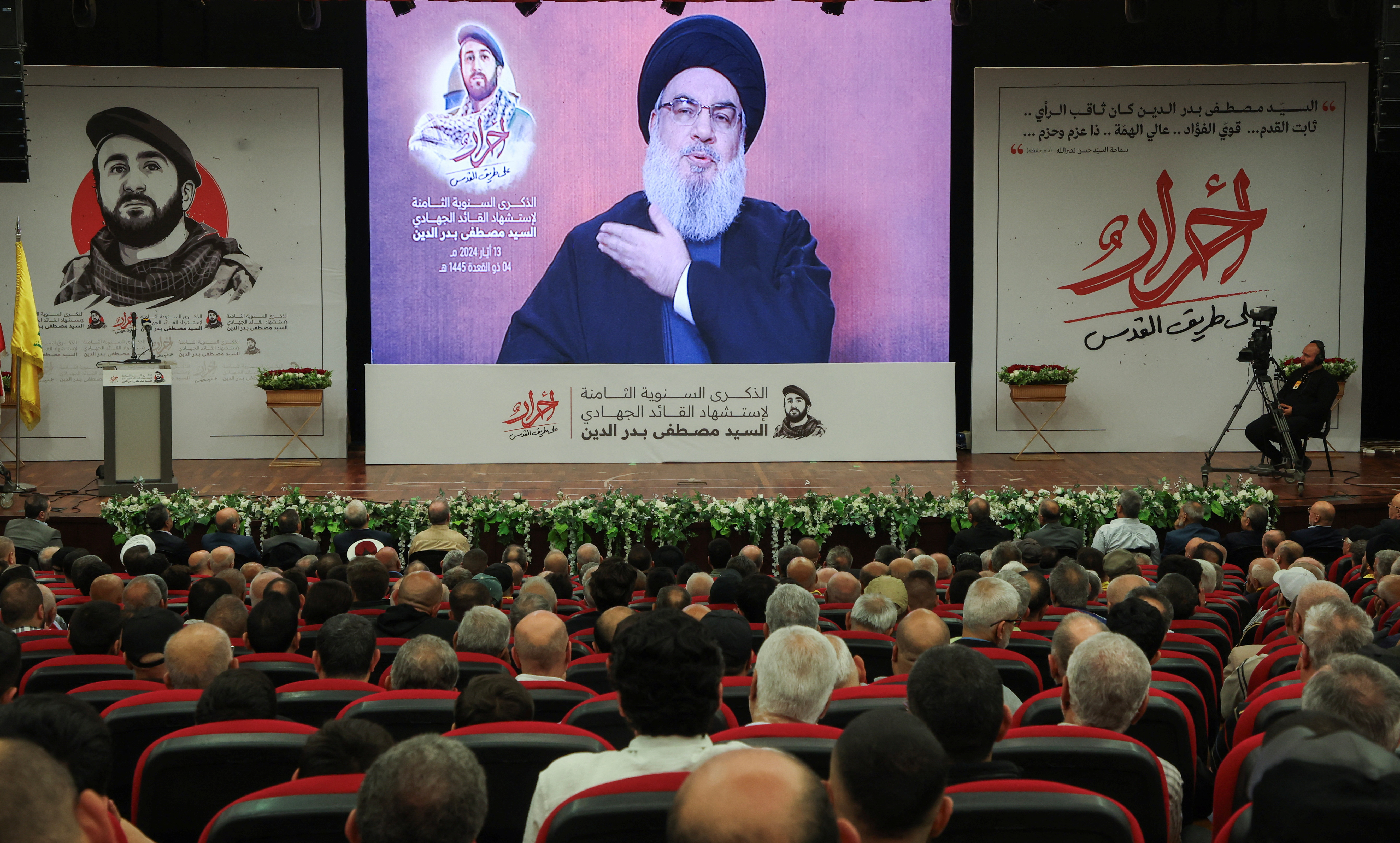Hezbollah leader Sayyed Hassan Nasrallah’s threat to consider Cyprus as a “part of the war” should it continue to allow Israel to use its airports and bases for military exercises garnered a generally muted reaction from leadership figures in the world and in Cyprus.
Cypriot government spokesman Konstantinos Letymbiotis told public broadcaster CyBC that Nasrallah’s statements were “not pleasant” and made assurances that Cyprus would take the appropriate action through diplomatic channels.
“Cyprus is not involved and will not be involved in any war or conflicts. Therefore, the statements made by the Hezbollah leader do not correspond with reality,” he said.
He echoed what President Nikos Christodoulides said on Wednesday, namely that Cyprus is “part of the solution and not part of the problem” and insisted that the island is “a pillar of peace and stability in the wider region”, while also adding that relations between the Republic and Lebanon are “excellent”.
He went on to say that no country will be allowed by the government to carry out military operations on the island but did note the “peculiarity” of the existence of the British bases in Cyprus, which, he said, “have a different status”.
Meanwhile, Justice Minister Marios Hartsiotis said the measures taken by his ministry regarding matters such as terrorism are “evaluated and updated daily”.
“It is self-evident and understandable that the statements [made by Nasrallah] are also evaluated and the measures taken are updated on a daily basis, according to the information at our disposal,” he said.
Later in the day, European Commission spokesman for foreign affairs and security policy Peter Stano expressed the European Union’s support for Cyprus on the matter.
“Cyprus is a member state of the European Union. This means the European Union is Cyprus and Cyprus is the European Union,” he said.
He added that this means that “any threat against one of our member states is a threat against the European Union.”
“The EU fully supports Cyprus itself, as well as the statement made in relation to the threats from Hezbollah by the President of Cyprus [Nikos Christodoulides],” he said.
He went on to say that the EU “participates in contacts and activities with various partners in the region with the aim of contributing to the necessary de-escalation” of tensions.
With this in mind, he said there is a continuous ongoing dialogue with the Lebanese government, as well as “other parties, along with our partners from the region and the international community.”
“The sole aim of the contacts and the constant exchange of positions and views is to prevent any further escalation, because nobody has anything to gain from a possible further escalation between Hezbollah and Israel in this particular case,” he said.
He also said the EU is monitoring the situation on the border between Lebanon and Israel very closely as it is “a source of constant concern” and called for a de-escalation of tensions in the region.
Cypriot Foreign Minister Constantinos Kombos refrained from commenting directly on Nasrallah’s statements but did confirm on Thursday afternoon that he had held a telephone conversation with his Lebanese counterpart Abdallah Rashid Bou Habib, and elected to underline Cyprus’ good relations with Lebanon.
“Relations between Cyprus and Lebanon are built on a rich history of diplomatic cooperation,” he said, adding that continuous communication between the two countries is ongoing to discuss issues of common interest.
In a post on social media platform X later in the day, the Cypriot foreign ministry said the two diplomats spoke on the phone and that they reaffirmed “the close historical ties between Cyprus and Lebanon”.
Meanwhile citing government sources, local media reported on a “message” sent by Lebanese Prime Minister Najib Mikati to Christodoulides thanking the latter personally for his “excellent diplomatic statement” of Wednesday evening.
The same sources said the two leaders agreed to stay in touch.
Some in Lebanon had raised concerns earlier in the day after the Cypriot Embassy in Beirut did not open for business, but Lebanese television channel LBCI confirmed on Thursday afternoon that the closure had been planned in advance for administrative reasons, and that it will be open for business as usual on Friday.
In Cyprus, retired lieutenant general Ioannis Baltzotis said Cyprus should “always be concerned and take the appropriate measures”, given the fact that Hezbollah has a “strong military and weapons systems”, which mean that it could theoretically hit Cyprus.
“I consider this threat to be a warning. All this started from the developments in Gaza and the decision taken by the Israeli government, that after finishing with Hamas, it will turn to Hezbollah,” he said.
He pointed out that Hezbollah has put northern Israel under fire since the beginning of violence in Gaza last October, which has resulted in deaths on both sides and the displacement of almost 200,000 people.
“This situation may be a harbinger of a future war, the Israelis want to end every evil they have in their region,” he said.
He also pointed out the “unavoidable” existence of the British bases but called for calm preparedness.
“Let us be restrained and take precautions, but as Nasrallah is a rational leader, he will not take things to extremes. Hitting Cyprus is like hitting the western powers. It is something he wants to avoid. I think the risk is probably small,” he said.
Israeli Foreign Minister Israel Katz also reacted to Nasrallah’s statements in a post on X, the social media platform better known as Twitter.
“Nasrallah threatens to attack Cyprus. Iranian missiles and extremist Islamic terrorism threaten European countries and the entire free world. We must stop Iran now before it’s too late,” he said.
Elsewhere, reaction was less than easily forthcoming.
The Cypriot and British defence ministries promised that statements would be made in due course, while a spokesperson for the Greek defence ministry told the Cyprus Mail they were “not aware” of the statements, and the Turkish defence ministry elected not to pass comment.






Click here to change your cookie preferences